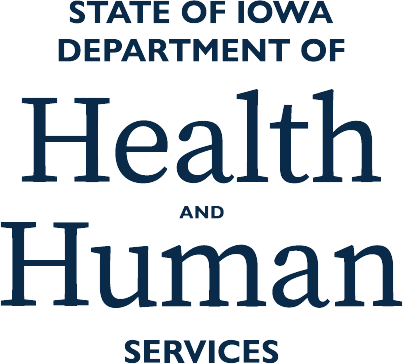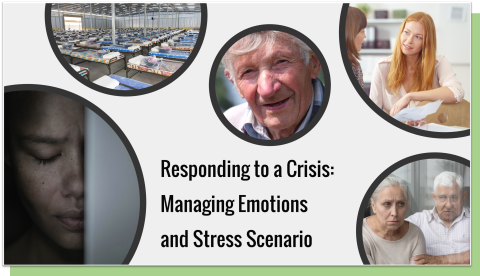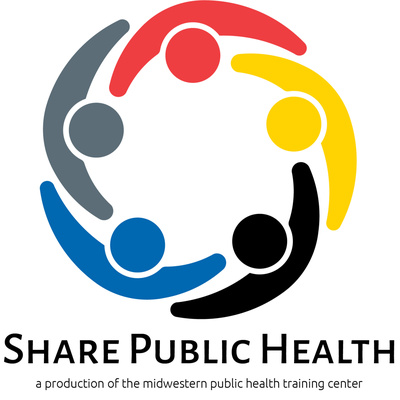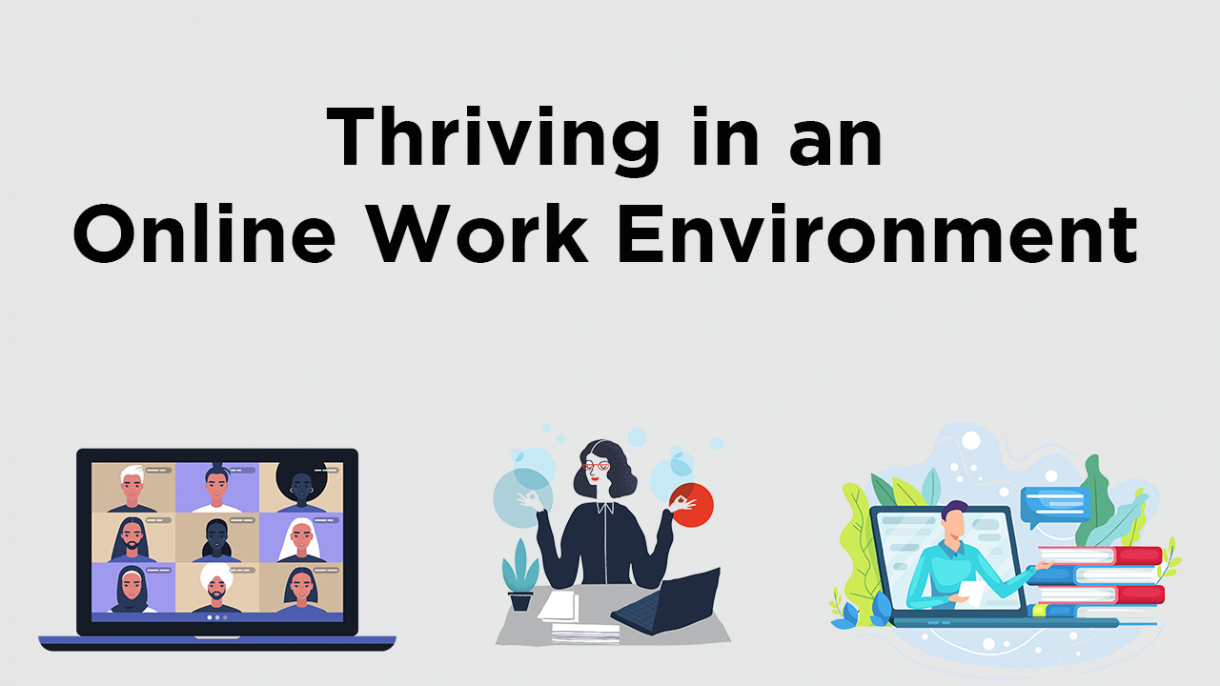Course Overview
Course Goal
This course utilizes scenario-based learning to cover concepts of Psychological First Aid in responding to disasters. The learner makes decisions about how to respond to the emotional needs of disaster victims and volunteers.
Intended Audience
This course is intended for the public health workforce, as well as anyone involved in post-disaster recovery.
Length
The length of time for participants to take this course is estimated to be one hour.
Course Content & Navigation
The course is set up as an interactive scenario. There are 4 sections of the course that need to be completed. Users will be directed into a scenario and then asked to make decisions. When users make the correct decision, they will advance to a positive outcome. When users make an incorrect decision, they will face a negative outcome and receive the necessary training to make a better decision. They are then given another opportunity to make the right choice. Users must answer the question correctly in order to continue to the next section of the scenario.
Learning Objectives
After completion of the course, learners should be able to:
- Assess the psycho-physiological impact of trauma
- Describe mental health interventions used during and in the immediate aftermath of a disaster in order to provide psychological stabilization
- Determine who may benefit from mental health intervention
- Administer mental health interventions to disaster victims as appropriate
- Apply the screening and intervention concepts that occur in the immediate aftermath of the disaster.
Certificate of Completion
A certificate of completion is awarded on successful completion of this course. In order to successfully complete this course, you MUST score 70% or higher on the Posttest.
If you do not receive 70% on the posttest, you may review the material and re-take it. The posttest will become available for a re-take 2 days after your first attempt.
Modality/Format
Online Self-Pace
Pre-requisites/Learning Level
No pre-requisites
Public Health Preparedness Capabilities
Capability 2: Community Recovery
- Function 1: Identify and monitor public health, medical, mental/behavioral health system recovery needs.
- Function 2: Coordinate community public health, medical, mental/behavioral health system recovery operations.
PERLC Competencies
Domain I: Model Leadership
1.2 Manage behaviors associated with emotional responses in self and others.
- Distinguish between the possible signs of personal stress, burn-out and vicarious trauma.
- Applies techniques for maintaining awareness of possible signs of personal stress, burn-out, and vicarious trauma.
- Applies intervention techniques to support emotional health needs.
- Describe the importance of mitigating acute distress and fostering adaptive functioning and coping.
- Demonstrate personal behavioral techniques for mitigating acute distress and fostering adaptive functioning and coping.
- Discuss the elements of self-care principles and practices.
- Use self-care principles and practices to mitigate potential adverse effects.
- Demonstrate the ability to develop a helping relationship in support of the emotional health of others.
- Demonstrate principles of active listening, express empathy and rapport.
- Behave in a positive non-judgmental and respectful manner.
- Evaluate the emotional support needs of others.
- Assess individuals requiring immediate care from those who need no care or delayed care.
- Distinguish between well-functioning, distress and dysfunctional emotional responses.
- Describe mechanisms of liaison and advocacy and knowledge of referral resources.
- Distinguish between the types of referrals needed for intensive care.
- Express confidence in ability to make referrals, and serves as a liaison and advocate.
Core Competencies for Public Health Professionals identified:
Domain 2: Policy Development and Program Planning Skills
T1: 2.2.5. Connects individuals to programs and services (e.g., helping individuals navigate systems, linking individuals to healthcare or social services)
Technical Requirements
- Adobe Acrobat Reader
- Speaker/Earphones
Registration Requirements
Register a free account
Course Redesign and Redevelopment (May 2023)
Subject Matter Experts
- Suzanne Hawley, PhD
Instructional Designers & Developers
- Alyssa Azhari
Item Writer
- Roger Hileman
Audio/Video production
- Melissa Richlen
Narrator
- Suzanne Hawley, PhD
LMS Coordinator
- Tim Beachy
Course Creation and/or Update
- May, 2023
Need Assistance?
If you need technical help, please Contact Us
Acknowledgments
The following organizations collaborated on the development of this course: Iowa Department of Public Health (IDPH); University of Iowa College of Public Health, Institute for Public Health Practice (IPHP).






